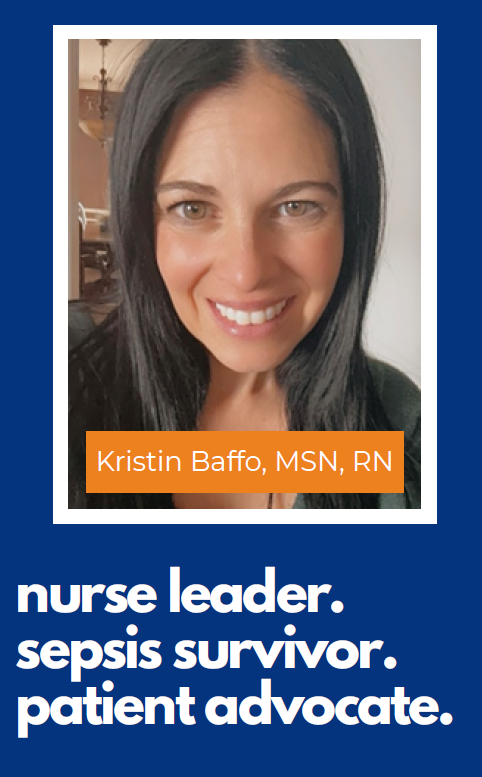“I believe we have a real opportunity to improve the post-sepsis experience for patients – preparing them for the reality of sepsis recovery.”
-KRISTIN BAFFO, MSN, RN

Sudden Turn in Health
Kristin Baffo, a dedicated nursing manager and mother of three, was known for her strong health and rarely required medical attention. Her life took a drastic and unexpected turn when she became critically ill and was unable to secure a timely medical appointment. Forced to seek emergency care, she endured an exhausting 18-hour stay in the ER — 12 of those hours waiting for an ICU bed. Eventually diagnosed with sepsis, her condition was far more severe than initially recognized. The experience left Kristin disoriented and unable to advocate for herself — a jarring role reversal for someone deeply familiar with the healthcare system.
The Challenges of Recovery
Surviving sepsis took a heavy toll on Kristin emotionally, physically, and cognitively. Despite her medical expertise, she felt unprepared for the disorientation that followed, especially post-discharge when key follow-up care was missing. Recovery was slow and frightening, with persistent mental fog and limited progress. Only through the support of her healthcare community was she eventually able to access the care she needed.
A Voice for Change
Kristin’s later, planned hospital visit highlighted how coordinated care and communication can transform patient experiences. Now serving as a patient advisor for HMS, she draws on her journey to advocate for compassionate, patient-centered care — especially during transitions from hospital to home. Her story underscores the urgent need for systemic improvements in post-sepsis care and discharge planning.